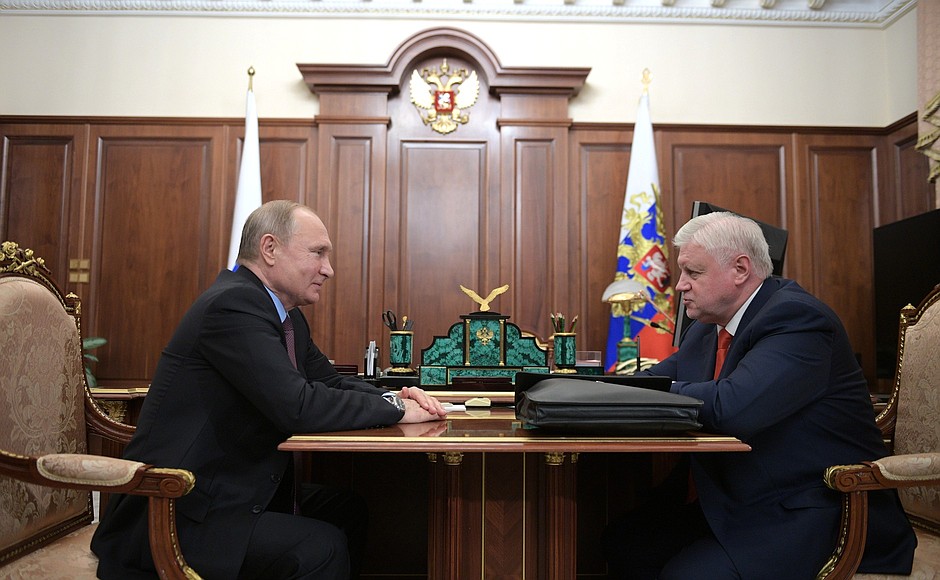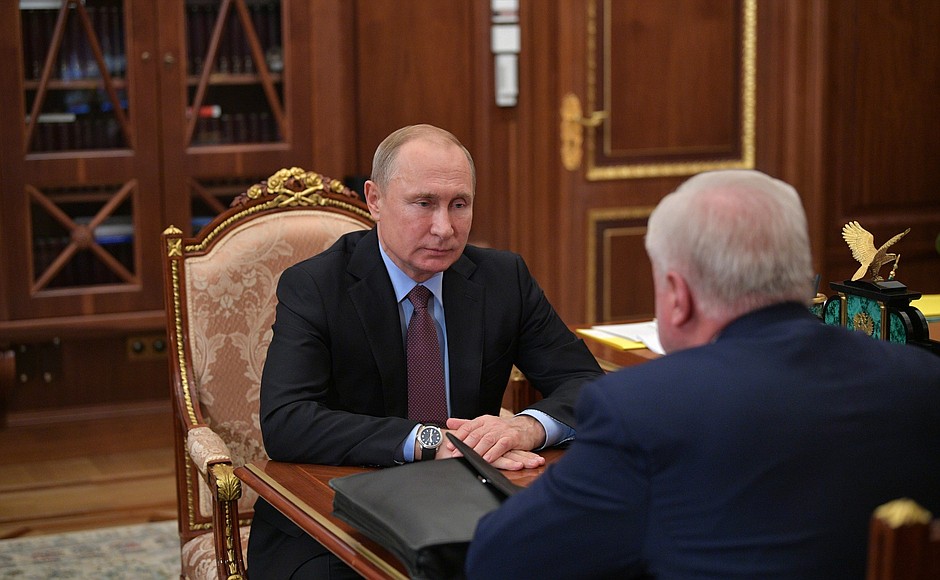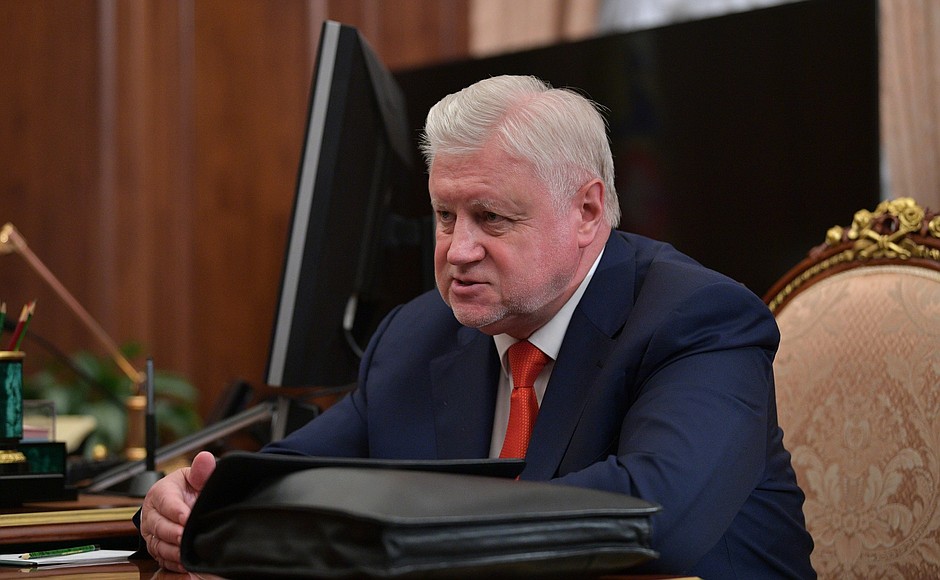President of Russia Vladimir Putin: Mr Mironov, we recently met to discuss the work at hand. Today I would like to talk about your priorities for the short term, for the spring session and the first half of 2019.
Head of A Just Russia political party faction in the State Duma Sergei Mironov: Mr President, we have already started this discussion. We have submitted a draft law on nationwide renovation to the State Duma. You know about the success of the renovation projects in Moscow. We have prepared a framework law on renovating other cities across Russia. What will be the main difference of these projects from the Moscow ones? In Moscow, new houses are built in place of the obsolete five-story buildings, whereas our renovation plan for other Russian cities stipulates the demolition or renovation of such buildings, including major repairs. In other words, the local authorities can choose which option is preferable. The main part of this framework law is the largest possible protection of the future participants of these renovation projects based on Moscow’s experience.
Vladimir Putin: Yes, but you should bear in mind that these projects in Moscow are financed from the city budget.
Sergei Mironov: Yes, we do, but we also stipulate different kinds of financing, including private investors in the case of certain old houses that are being demolished, land plots right in the city centre. You know that there are many cities in Russia, including beyond the Urals, where condemned houses unfit to live in are located in central districts.
Another law we have drafted is based on your Address to the Federal Assembly, where you set a goal for maintaining the country’s population. We have drafted a law to this effect. We propose 14 criteria for assessing the performance of regional authorities and the federal government. These are well-known criteria. The only thing we did was bring them together in a draft law, which will help us decide which regions are implementing the President’s May Executive Orders and the tasks you set out in your Address to the Federal Assembly, and which are dragging their feet.
The third bill that we have submitted and will be considering in the coming year is the law on social entrepreneurship. There are businesses in Russia that either produce certain goods used for social needs, such as products for people with disabilities, or employ people with disabilities at their facilities. Today, unfortunately, they have no preferences or legal guarantees. We do not think even the concept of social entrepreneurship is reflected in our legislation.
And there is one more issue. In the coming year, we will probably be forced to return to the subject of the Paris Agreement and climate change, as I have already reported to you. I was pleased that you said recently at the Energy Forum that the so-called anthropogenic factor has not yet been scientifically proven. This is really so. But at the same time, what they are trying to do now, because we have already seen that a draft law has been submitted, to put it in simple terms is, we are cutting the bough we are sitting on. We will be forced to reduce gas and oil production. We will actually restrict the industry… I think that the Climate Doctrine of the Russian Federation and our participation in general should be considered from the national security perspective. I have prepared a separate letter to you on this matter. Our scientists from Moscow State University have developed their ideas, including a scientifically based concept on climate change. I will hand it over to you.
Vladimir Putin: I do not think such threats exist in reality here. But of course, let us see and make sure that they do not arise.
Sergei Mironov: That is right. Indeed, there are no threats so far. But they can arise.
Vladimir Putin: As for our further work, I hope that we will constructively work with your faction in 2019. I would like to thank you for your work in the outgoing year.
Sergei Mironov: Thank you, Mr President. I have already said and will repeat with great pleasure that our faction in the State Duma has had a unique outcome this year: 25 bills were passed into laws, and 18 adopted in the first and second reading.
<…>



